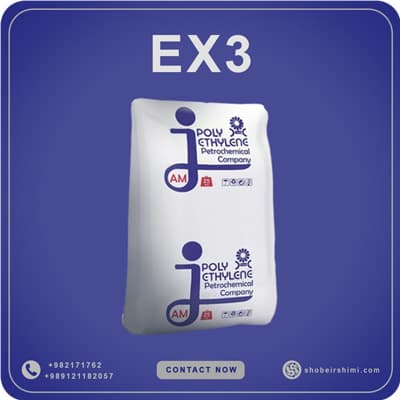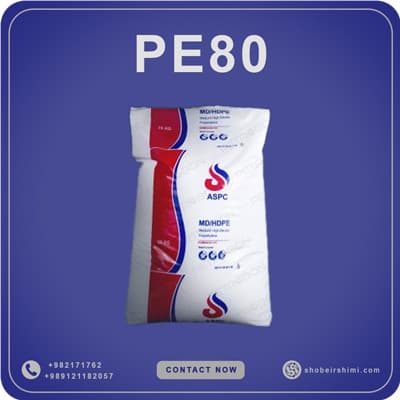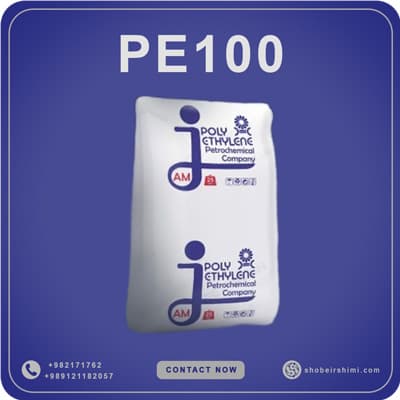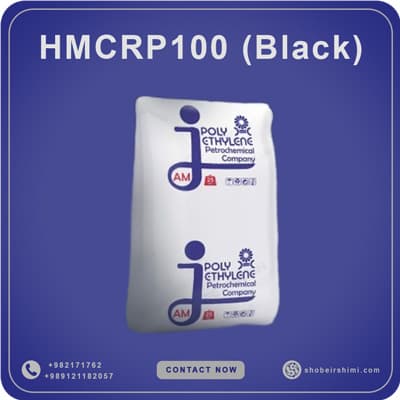HDPE Pipe Grades: A Guide to Pipe Grade HDPE and Its Applications
The HDPE pipe grade has emerged as a cornerstone in modern piping solutions due to its exceptional durability, flexibility, and resistance to environmental stress. Choosing the right HDPE pipe grade is crucial for ensuring the longevity and performance of any piping system. The term HDPE pipe refers to high-density polyethylene piping systems widely utilized across various industries such as water supply, gas distribution, sewage, and industrial applications. Unlike conventional pipes, HDPE pipes offer superior corrosion resistance, minimal maintenance requirements, and outstanding chemical inertness, making them an ideal choice for long-term infrastructure projects.
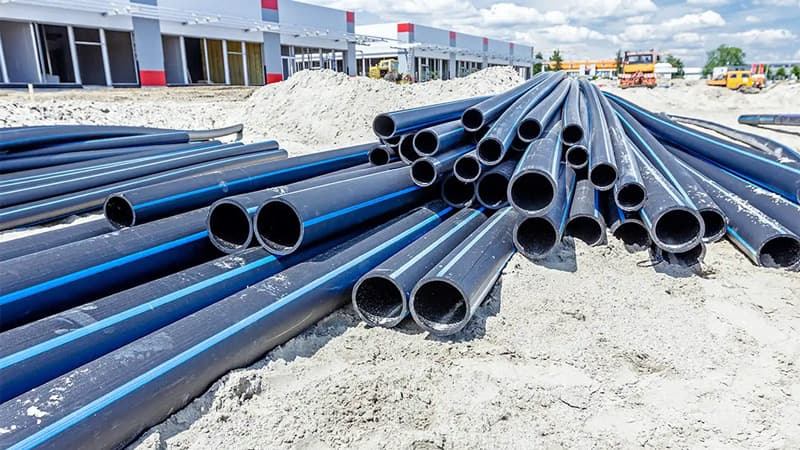
However, it is crucial to understand that the quality and performance of HDPE pipes heavily depend on the HDPE pipe material grade used during manufacturing. At the core of HDPE pipe production lies a variety of polyethylene grades tailored to meet specific mechanical and environmental demands. Our company specializes in supplying premium-grade HDPE pipe grade resin, ensuring manufacturers have access to the highest quality resins necessary for producing reliable and robust piping solutions.
Grades of HDPE Materials for Pipe Production
Understanding the properties and applications of each HDPE pipe grade helps manufacturers select the best material for their projects. HDPE pipe grades come in various types designed to fulfill different performance criteria and regulatory standards. Selecting the appropriate HDPE pipe grade is essential for manufacturers aiming to produce pipes that meet specific pressure ratings, environmental resistance, and longevity requirements. The most commonly used HDPE pipe material grades in manufacturing include PE 100, PE 80, and specialized compounds like CRP100B, each offering distinct mechanical properties.
- HDPE pipe grade PE100: This is the highest performance HDPE grade, known for exceptional tensile strength and excellent resistance to slow crack growth (SCG). Pipe grade HDPE PE100 is ideal for high-pressure water and gas pipelines requiring long-term durability and safety. It’s the standard for modern, demanding applications.
- PE 80: A versatile and cost-effective pipe grade hdpe, widely used in medium-pressure applications like municipal water and gas distribution. PE80 grade hdpe pipe balances durability with economic efficiency for reliable performance.
- PE 40 & PE 32: These grades are primarily used for low-pressure systems where flexibility and ease of installation are important. Common in irrigation and agricultural drainage, they provide moderate strength with enhanced pliability.
- PE 63: An older, less common grade today, still used in some non-critical piping systems. Provides moderate mechanical properties and is generally found in low-pressure applications.
- PE 100+: An advanced HDPE grade with improved tensile strength, crack resistance, and thermal stability. Designed for demanding industrial uses requiring superior performance and longevity.
- EX3: A high molecular weight, bimodal HDPE copolymer, often classified as PE80 or PE100, known for its excellent stress crack resistance (ESCR) and good impact strength. It’s widely used for pressure pipes, including drinking water and gas pipelines, as well as sewer pipes and fittings, offering a long service life.
- CRP100B: A cutting-edge HDPE compound offering superior resistance to rapid crack propagation (RPP) and excellent impact strength, even at low temperatures. Primarily used in pressure pipe applications where extreme durability and resistance to sudden pipe failure are crucial.
This table helps illustrate the significant differences between each grade of hdpe pipes, guiding the selection of the right HDPE pipe material grade for any project. Leading global producers like Borouge, SABIC, and Reliance provide high-quality HDPE pipe grade resin for these applications.
Properties of HDPE pipe raw materials
HDPE pipe raw materials are renowned for their exceptional combination of mechanical strength, chemical resistance, and environmental durability, which makes them highly suitable for various demanding piping applications. These properties ensure that pipes manufactured from high-quality HDPE pipe grade resin perform reliably under challenging conditions, providing a long service life and minimal maintenance. Each HDPE pipe grade offers unique characteristics tailored to specific pressure ratings and environmental conditions.
Key HDPE pipe grade material properties include:
- High Tensile Strength: Enables pipes to withstand high internal pressures without deformation or failure. The hdpe pipe grade material modulus is a key indicator of this stiffness and strength.
- Resistance to Slow Crack Growth (SCG): This is a critical property for long-term pipeline integrity and durability. HDPE pipe grades like PE 100 and PE 100+ are specifically engineered to excel in this area.
- Thermal Stability: Maintains performance across a broad temperature range, from sub-zero environments to elevated industrial temperatures.
- Chemical Inertness: Provides excellent resistance against acids, bases, solvents, and other aggressive chemicals, making them ideal for a food grade hdpe pipe.
- Flexibility and Impact Resistance: Allows pipes to absorb ground movements and vibrations without structural damage, which is a major advantage of pipe grade hdpe over rigid materials.
- Low Water Absorption: Ensures dimensional stability and prevents material weakening over time.
A crucial consideration is whether is hdpe pipe food grade. Many HDPE pipe grades, particularly those designated for potable water systems, are indeed food grade hdpe pipe. This ensures the safety of the drinking water being transported. When sourcing, always check for the appropriate certifications for food grade hdpe pipe suppliers.
Applications of HDPE Pipe Grades
The choice of HDPE pipe grade directly influences the mechanical and chemical properties of the final pipe product. HDPE pipe raw materials form the foundation for manufacturing pipes that serve a wide array of applications across multiple industries. Thanks to their outstanding properties such as corrosion resistance, flexibility, and chemical inertness, HDPE pipes made from these raw materials have become the preferred solution for both municipal and industrial infrastructure projects. Selecting the proper HDPE pipe grade ensures the pipe performs optimally in its intended application.
Common applications of HDPE pipes produced from HDPE pipe grade granules and resins include:
- Water Supply Systems: Used extensively for potable water distribution, with food grade hdpe pipe being the standard, due to their non-toxic nature and resistance to biofilm formation. The question “is hdpe pipe food grade” is answered by these certified HDPE pipe grades.
- Gas Distribution: High-pressure resistance makes HDPE pipes suitable for natural gas and propane transportation, typically using PE80 or PE100 grades.
- Sewage and Drainage: Excellent chemical resistance allows for use in wastewater and stormwater management systems.
- Agricultural Irrigation: Flexibility and durability suit irrigation networks and sprinkler systems, often using lower HDPE pipe grades.
- Industrial Piping: Resistant to a wide range of chemicals and temperatures, ideal for conveying aggressive fluids in manufacturing plants.
- Mining: Durable under harsh conditions and resistant to abrasion, perfect for slurry transport and tailings disposal.
- Telecommunications and Electrical Conduits: Used as protective ducts due to their impact resistance and longevity.
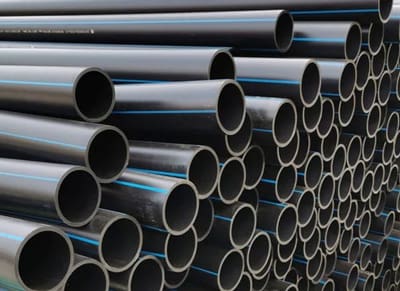
Why Choose SHOBEIR SHIMI for HDPE pipe raw materials Supply?
SHOBEIR SHIMI stands as a leading supplier of premium HDPE pipe raw materials, committed to empowering manufacturers with the highest quality polyethylene resins available in the market. We are a reliable partner for HDPE pipe grade manufacturers worldwide. At SHOBEIR SHIMI, we offer a wide range of HDPE pipe grades to match diverse manufacturing needs. We specialize exclusively in raw material supply, ensuring that our clients receive consistent, certified, and customized HDPE pipe grade resin that meets their exact production requirements.
Choosing SHOBEIR SHIMI means benefiting from:
- Extensive Product Range: A comprehensive selection of HDPE grades including EX3, CRP100B, PE 32, PE 40, PE 63, PE 80, PE 100, and advanced PE 100+ materials, as well as other brands like Borouge, SABIC, Reliance, INEOS, and TOTAL.
- Quality Assurance: Strict quality control processes guarantee materials that comply with international standards such as ISO and ASTM, including certification for food grade hdpe pipe.
- Technical Support: Expert guidance to help optimize resin selection for specific pipe applications and manufacturing conditions. This includes assistance with parameters like hdpe pipe grade mfi and understanding the specific properties of each grade.
- Reliable Supply Chain: Efficient logistics ensure timely delivery and uninterrupted production cycles.
- Sustainability Commitment: Providing eco-friendly, recyclable HDPE materials, contributing to sustainable infrastructure solutions.
For purchasing and exporting high-quality HDPE pipe raw materials and hdpe pipe grade granules, connect with SHOBEIR SHIMI — your trusted partner in advancing pipe manufacturing excellence. We can help you with questions like “what is hdpe pipe grade” and “is hdpe pipe food grade” and provide all the necessary certifications. We also offer pipe grade hdpe sheet for fabrication needs, and our expertise covers the full range from pe80 grade hdpe pipe to PE 100+.

